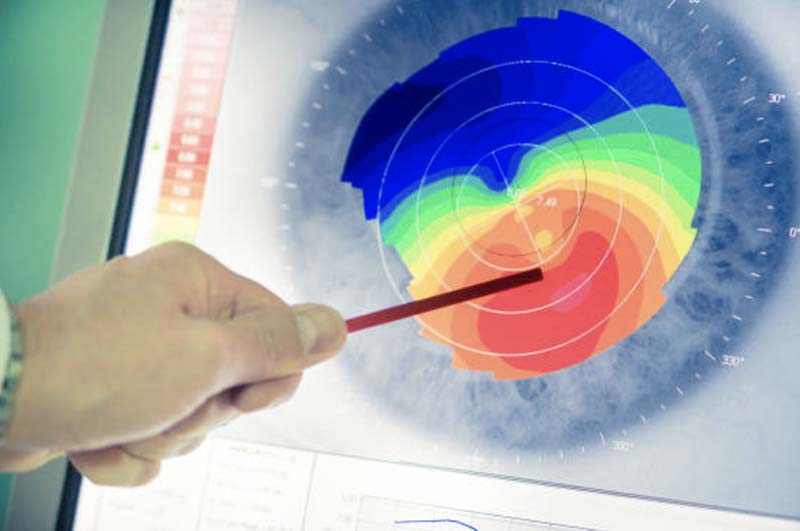Keratoconus Eye Disease
Keratoconus is a rare progressive eye disease in which the clear tissue of the cornea bulges into a cone-shape, causing blurred and often distorted vision. The warped cornea reacts to incoming light and, as the disease progresses, can cause nearsightedness and irregular astigmatism. This condition can be caused by an imbalance of corneal enzymes, making the cornea vulnerable to oxidative damage.

Keratoconus Treatment
If Keratoconus is diagnosed in its early stages, it can be treated with eyeglasses or even soft contact lenses. However, as the cornea continues to distort, additional measures may need to be implemented to protect the patient’s vision, such as specialized contacts, crosslinking, and transplants.
- Corneal Crosslinking: Crosslinking is a surgical procedure that strengthens the corneal tissue by bonding collagen fibers together. Your eye doctor uses specialized eyedrop medication and ultraviolet light to prevent the cornea from bulging even more. This procedure can help patients avoid major surgical procedures such as corneal transplants.
- Specialized Contact Lenses: Contact lenses are a relatively simple solution to smooth over the surface of the warped cornea and restore clear vision. Because the cornea is constantly changing with Keratoconus, these lenses require constant visits to an eye care provider to keep up with specialized prescriptions. Depending on the severity of the patient’s condition, the eye care provider might recommend soft contact lenses, gas permeable contact lenses, “piggybacking” contact lenses, hybrid contact lenses, scleral and semi-scleral lenses, or prosthetic lenses.
- Intacts: Intacts are a visual enhancement solution for patients who no longer benefit from contact lenses. These surgically positioned, clear corneal inserts reshape the front surface of the eye for smooth, precise vision.
- Corneal Transplant: For those with advanced Keratoconus, contact lenses may no longer be enough to correct their vision. A cornea transplant replaces the transparent front layer of the patient’s eye is a last resort for those diagnosed with Keratoconus. Even after the surgery, they will probably require glasses or contact lenses.
How to Diagnose Keratoconus
Topography measures the curvature of your cornea and can determine if the shape aligns with Keratoconus patterns. This condition can also be tested by refractive laser surgeons because these patients are not candidates for most laser vision correction surgeries, such as LASIK.

